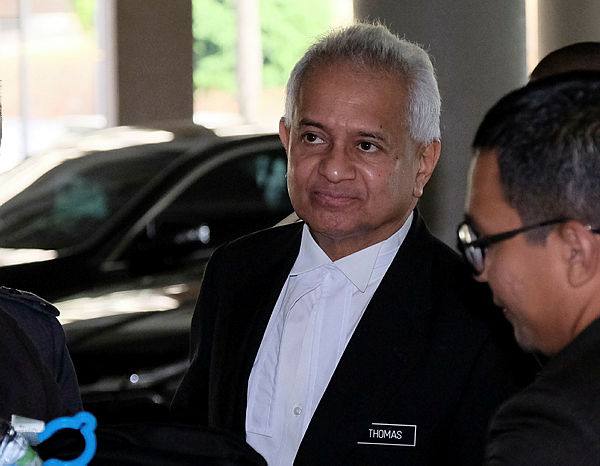PETALING JAYA: All Malay rulers are subject to criminal prosecution in Malaysia but not so in the International Criminal Court (ICC) even if Malaysia ratified the Rome Statute.
Attorney-General Tommy Thomas (pix) said the immunity for the rulers was removed under an amendment to the Federal Constitution in 1993.
However, they can be tried only in a special court, unlike citizens who can face prosecution in the ordinary courts.
Thomas was speaking at the ‘Malaysia and Rome Statute’ forum at Universiti Malaya last Friday.
He explained that the Yang DiPertuan Agong was a constitutional monarch who acted on the advice of the prime minister and the cabinet. “Any decision to go to war is made by the prime minister, the cabinet and the Defence Ministry even though the King is also the supreme commander of the armed forces,” he said.
For instance, he cited that when former British prime minister Tony Blair decided to lead his country into the 2003 invasion of Iraq, no one called for Queen Elizabeth II to be tried.
Just like the Agong, the Queen of England is a constitutional monarch and the supreme commander of her nation’s armed forces.
Thomas said the crimes listed in the Rome Statute — genocide, crimes against humanity, war crimes and crimes of aggression — were not covered under Malaysian law.
“The lawmakers must have felt that Malaysia had always been a peaceful country so there was no need for laws against ‘non-existent’ crimes,” he said.
Thomas added that even if the Rome Statute was ratified, the local enforcement authorities would have the primary responsibility to prosecute or investigate criminals of serious international crimes under Malaysian law in the domestic court.
“The ICC would only put pressure on those who administer justice in Malaysia to do the right thing,” he said.
He added that ratifying the Rome Statute would not make Malaysia a safe haven for those guilty of the four international crimes. “It means that these criminals would be extradited from Malaysia immediately.”
In any case, Thomas said, the previous administration had made a decision to ratify the statute in 2011, so “this is just an extension of that decision”.
“Those who criticise the move now were the same people who supported ratification previously,” he noted.
In March, Prime Minister Tun Dr Mahathir Mohamad said the government had no choice but to withdraw from the treaty in the wake of criticisms from the Johor palace and others who claimed it would undermine the royal institution.
The ratification would have come into effect on June 1.













